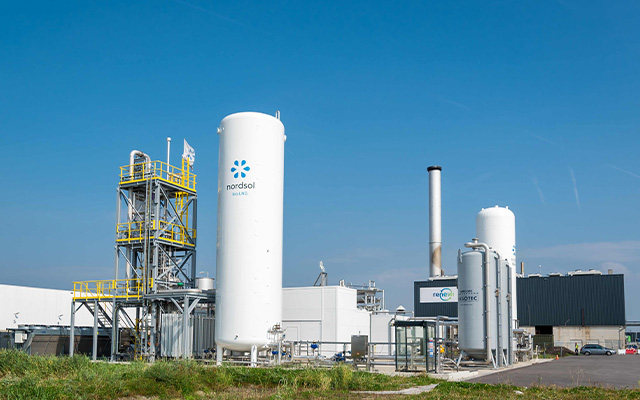
Nordsol’s bio-LNG plant in Amsterdam was opened in October 2021 by King Willem-Alexander of the Netherlands. The plant was officially insurance accepted and handed over from the Nordsol Projects organisation to Operations in April. The plant produces 3400 tpy of bio-LNG and captures 6300 t of biogenic CO2.
As a renewable replacement for LNG, bio-LNG offers similar advantages as LNG does versus diesel, including reduced CO2 emission, lower engine sound, lower nitrogen oxide emission, and significantly less particulate matter emission. Well-to-wheel, the greenhouse gas (GHG) emissions balance of bio-LNG can be even negative, depending on feedstock and production methodology.
Bio-LNG is also a key element of an efficient, sustainable, and circular economy. The biogas from which Nordsol produces bio-LNG originates from organic waste from supermarkets, collected by Renewi. The recycler processes the waste and converts it into biogas through anaerobic digestion. Nordsol’s bio-LNG plant reprocesses the biogas into bio-LNG. Shell makes this bio-LNG available for its road transport customers at LNG service stations in the Netherlands.